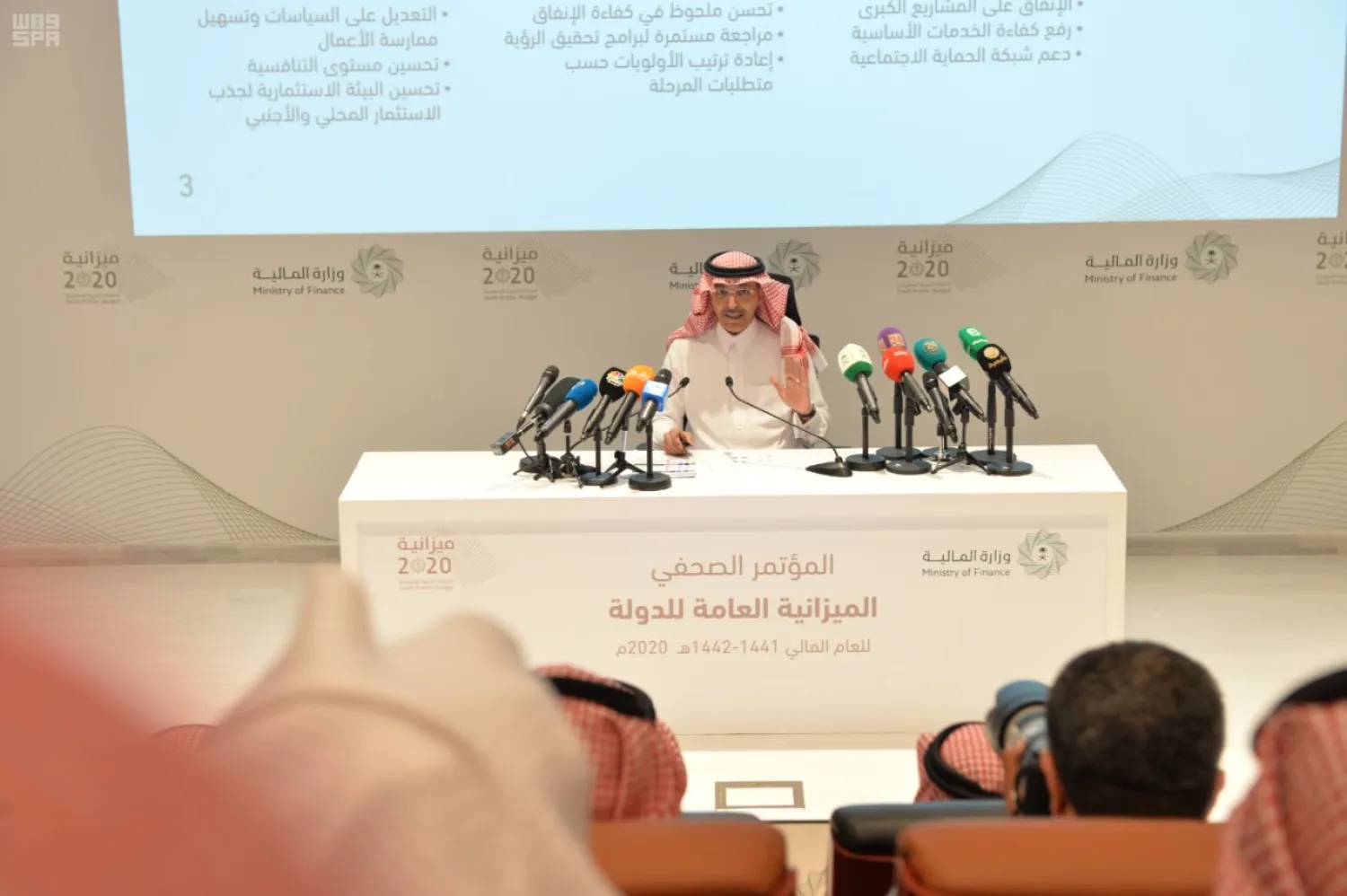Saudi Arabia announced a 1.02 trillion riyal ($272bn) budget for 2020 with revenues forecast at 833 billion riyals ($222.1bn).
The Kingdom’s finance minister, Mohammed al-Jadaan, attributed lowered spending to the success achieved in empowering the private sector and realizing efficiency in spending.
In statements made on controlling the deficit during the past four years, Al-Jadaan said that the government was able to reduce the deficit from levels much higher than 13 percent, to 9 percent and to 4.7 percent this year.
He added that it is important to focus on the two main components, namely, supporting economic growth, which he described as a major goal of the government, as well as ensuring financial sustainability.
“The budget demonstrates the government's keenness to enhance and sustain economic growth while ensuring fiscal sustainability,” he remarked during a press conference.
“We have adopted economic policies that target the growth of non-oil GDP, improving the quality of services provided to our citizens and raising the efficiency and effectiveness of government spending, especially social spending,” he stressed.
“Simultaneously, the government continues its steadfast commitment to empowering the private sector’s role in the economy, job creation and diversification of investment under the umbrella of Saudi Vision 2030 objectives.”
He also noted that the 2020 budget statement shows notable growth in various economic sectors during 2019, including a growth rate in private non-oil GDP of 3.4 percent during the second quarter of the year.
He also emphasized that the government will continue the implementation of its strategic objectives, aimed at economic diversification, by establishing a suitable environment for investment in promising sectors while providing a stable economic framework.
Speaking on digital transformation, Al-Jadaan confirmed that the government has achieved big leaps.
“We have reached advanced stages in achieving the goals of the Kingdom’s Vision 2030, with regard to diversification of revenues,” he told reporters.









